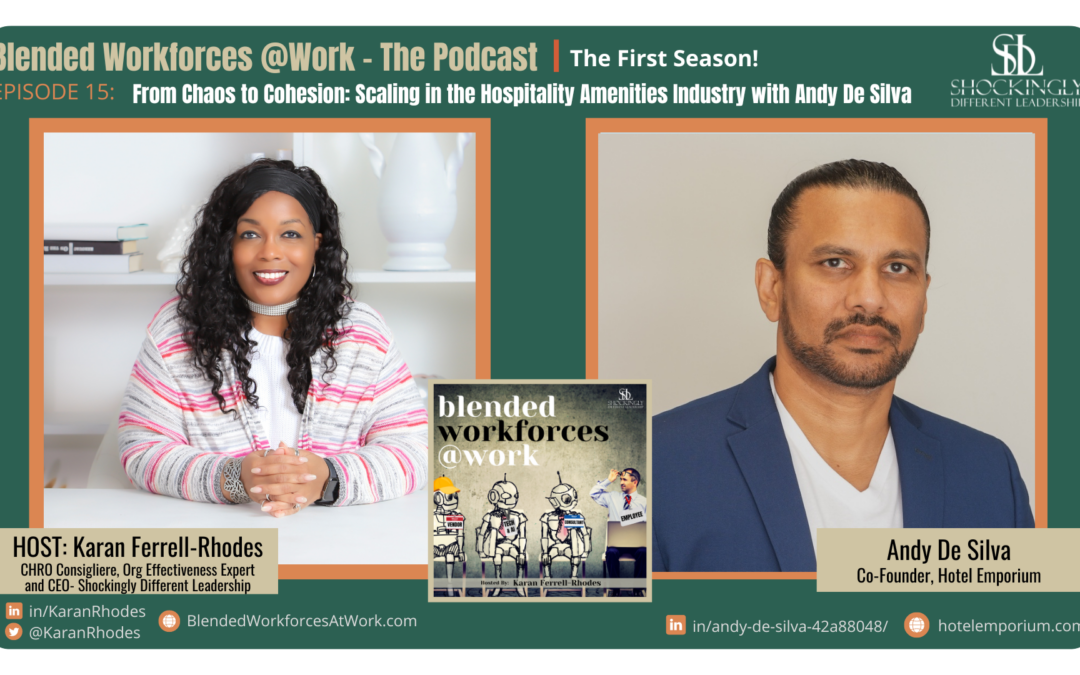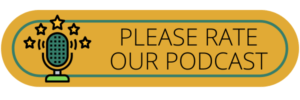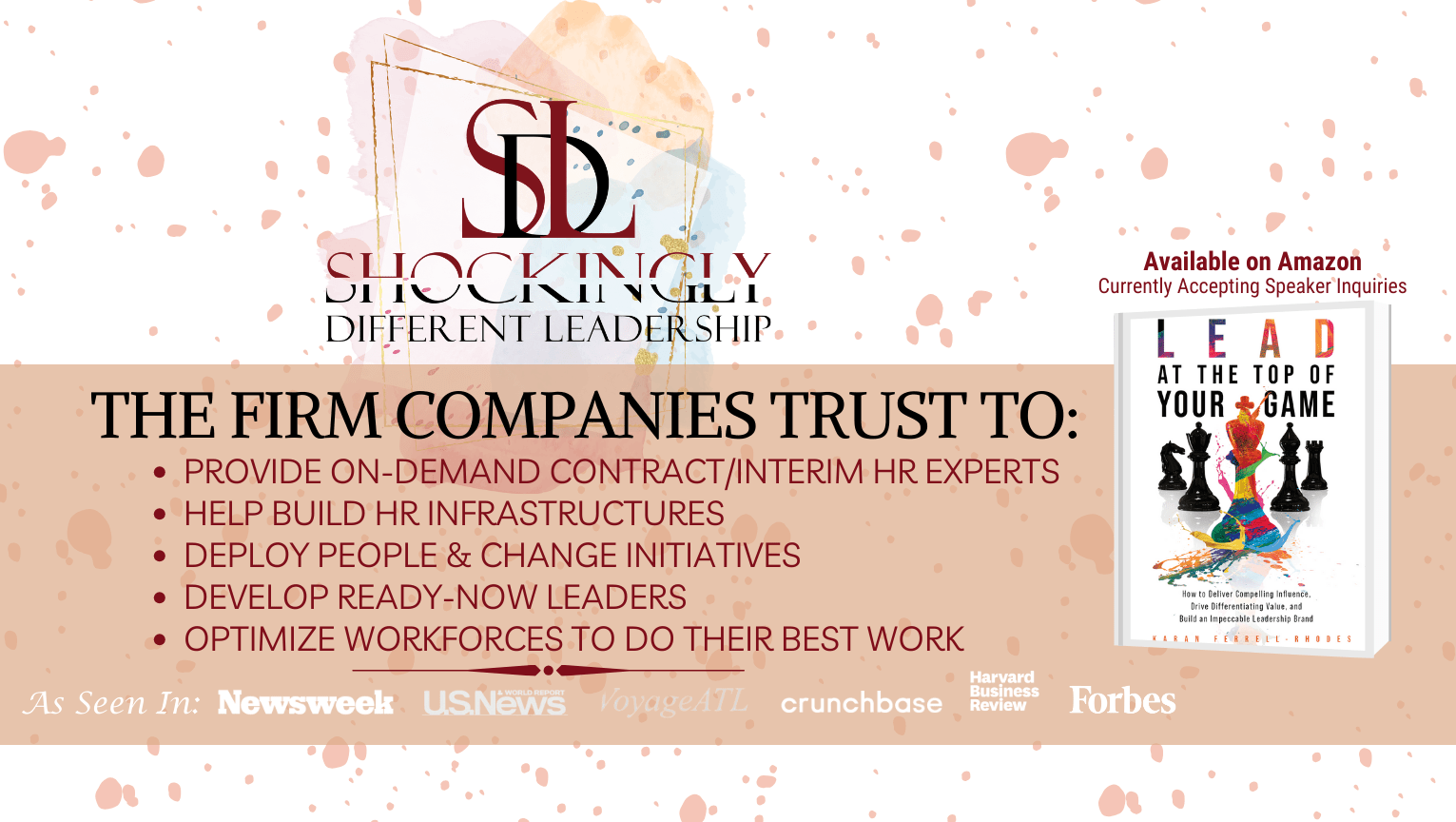IN THIS EPISODE, KARAN FERRELL-RHODES INTERVIEWS ANDY DE SILVA.
This episode unveils a narrative shaped by entrepreneurial spirit and global ambition! Andy shares his odyssey from Sri Lanka to pioneering sustainable amenities across 55 countries. Let’s discover how he navigates a lean, global workforce—all while shaping the future of guest experiences worldwide!
Andy De Silva is a Sri Lankan-born entrepreneur and the Co-Founder & CEO of Hotel Emporium, Inc. With a background spanning Hospitality, International Trade, and Tech Industries, Andy began his journey in Colombo before moving to the United States to pursue his career. Under his leadership, Hotel Emporium now services 14,000+ hotels and resorts globally, managing worldwide sales, operations, and strategic supplier relationships with over 1,000 vendors and factories.
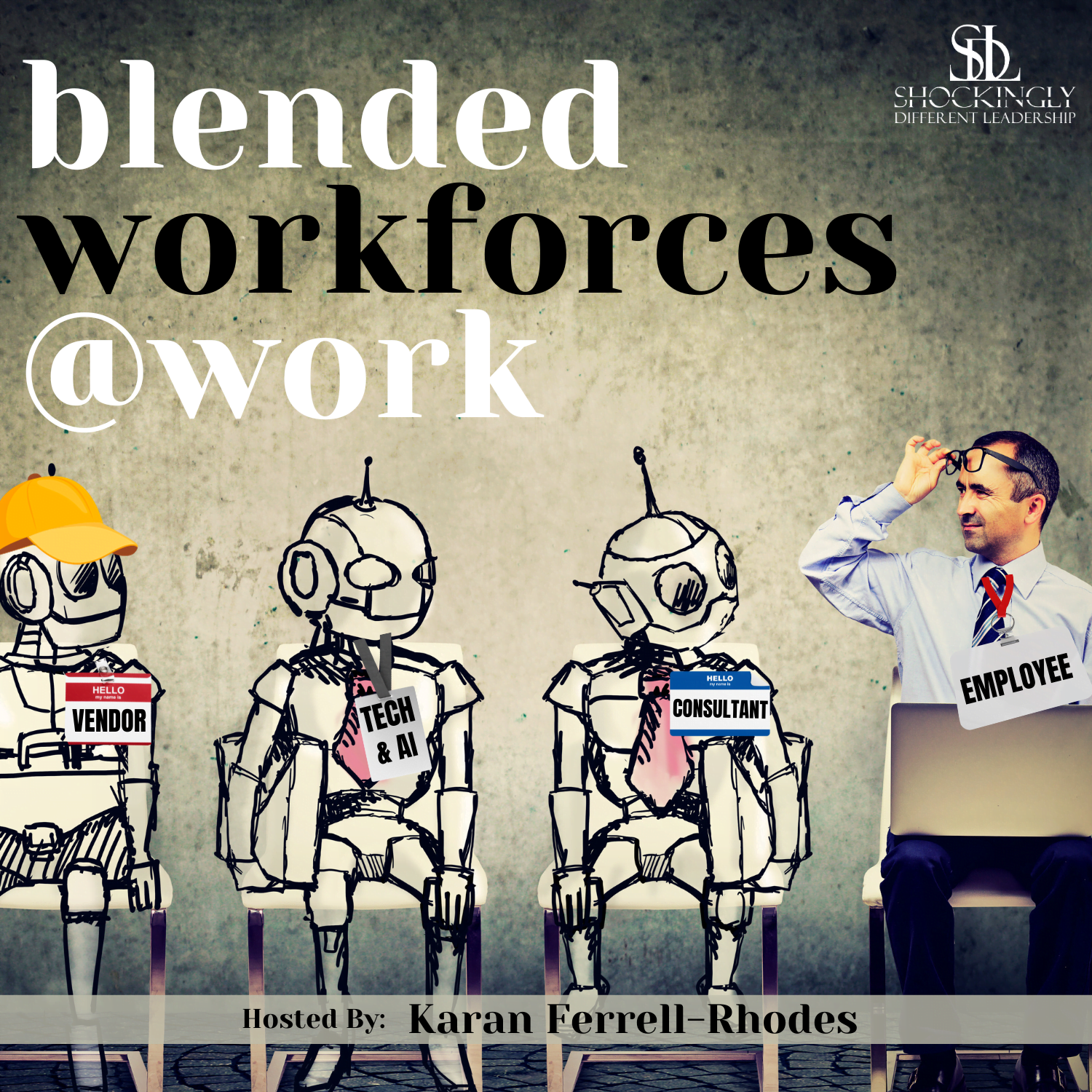
Posted by
SDL Media Team
Rather view our video podcast?

WHAT TO LISTEN FOR:
- What are the essential characteristics for fostering successful vendor relationships within the network?
- How does the unique business model facilitate global reach through strategic distribution?
- What are the primary challenges and practical solutions in managing payroll and staffing across global operations?
- What insights and challenges are associated with integrating blended workforces globally?
- How does embracing a global workforce transition from necessity to strategic advantage?
“Certain decisions can either destroy your company or take your company to the next level.”
FEATURED TIMESTAMPS:
[02:01] A Glimpse into Andy’s Life
[03:39] The Story of Hotel Emporium
[08:01] Inside Hotel Emporium’s Operations
[10:50] Building Strong Vendor Relationships
[14:27] Global Reach Through Strategic Distribution
[16:13] Challenges and Solutions in Payroll and Staffing in Global Operations
[18:40] Advantages and Challenges of a Blended Workforce
[22:51] Innovating the Future of Guest Amenities
[26:44] Signature Segment: Andy’s LATTOYG Tactic of Choice: Leading with strategic decision
[28:40] Signature Segment: Andy’s entry into the LATTOYG Playbook: Finding Balance at the Top

ABOUT ANDY DE SILVA:
Andy De Silva is a Sri Lankan-born entrepreneur who has founded companies in Hospitality, International Trade, and the Tech Industries. Growing up in Colombo, Andy had a passion for business enterprise and migrated to the States at a young age to pursue his career in hospitality. Shortly after, he co-founded Hotel Emporium, Inc., which services 14,000+ hotels & resorts worldwide today. Andy is responsible for the company’s worldwide sales and operations, including end-to-end global supply management. His Executive-level experience has amassed strategic supplier relationships of over 1,000+ vendors & factories.
Andy has extensive leadership experience, having opened 20+ international offices, building and structuring operating teams, and expanding the business’ reach to over 50 countries. De Silva has 20+ years of manufacturing relations and supply chain management, amassing a network of over 1,000+ manufacturers & suppliers. He holds proprietary global patents for sustainable packaging within the food and cosmetic industry, along with other cosmetic packaging-related intellectual property. Also, he is currently Co-Founder and CEO of a global hotel supply company with annual sales revenue of $30MM and Co-Owner of a cutting-edge technology company servicing autonomous checkout micro-markets to consumers.
LINKS FOR ANDY:
- Website: hotelemporium.com/
- LinkedIn: linkedin.com/in/andy-de-silva
ADDITIONAL RESOURCES FOR YOU:


Episode Sponsor
SDL is the go-to firm companies trust when needing to:
- supplement their in-house HR teams with contract or interim HR experts
- implement leadership development programs that demonstrate an immediate ROI and impact on the business

Episode 15 | From Chaos to Cohesion: Scaling in the Hospitality Amenities Industry with Andy De Silva
Andy De Silva 00:01
I still believe in face to face meetings at the beginning, and spend some quality meetings with these people, right, you can have the best factory, you can have the best product, that doesn’t mean they’re gonna work with you well.
Karan Rhodes 00:01
Blended workforces are one of the hottest talent strategies today, where employers are using a mix of traditional employees with external resources like independent contractors, coaches, consultants, vendors, and technology solutions, all in order to enhance competitiveness, ensure cost flexibility, and expedite business goals. But how are the successful companies infusing blended workforces into their business strategy? And what are the critical success factors and pitfalls to avoid during implementation? And on the flip side, what does it really take for suppliers to improve their chances of finding and landing contract opportunities? The devil is in the details, my friends! I’m your host, Karan Ferrell Rhodes, and it’s time to get smarter about Blended Workforces at Work! Hello, my superstars out there welcome to another episode of the Blended Workforces at Work podcast. I really want to welcome to today’s show, a absolutely fantastic guest, who’s going to talk about how his company uses blended workforces in order to make his whole business model work. It is absolutely fascinating seeing a preview, and I’m sure many of you are going to be fascinated as well. We’re absolutely thrilled to have with us today. Andy De Silva, who is the CEO and co founder of Hotel Emporium is a leading directement manufacturer of eco friendly, premium luxurious hotel personal care amenities which I absolutely love, such as shampoo, conditioner, body wash lotion, and a lot of other offerings. The Andy is responsible for the company’s worldwide sales and operations, including their end to end global supply management strategy, which you all know, especially during the pandemic, we all had supply chain issues, but he’s gonna talk to us about that. But he’s also responsible for global supply chain for the company. And they have a mass which is amazing. A supplier network in relationships with over 1000 vendors and factories. I don’t know who on his team is keeping track of all that, but we’re gonna learn today. So, welcome to the podcast. Andy,
Andy De Silva 02:22
Thank you so much. I’m happy to be here.
Karan Rhodes 02:25
We’re so honored to have you. I have a million questions obviously to ask you. But before we do that, we love to learn a tidbit or two about I guess so for as much as you feel comfortable. Would you mind giving us a sneak peek into your life outside of work? Or if there is one
Andy De Silva 02:42
Absolutely. No more Originally, I’m from Sri Lanka. And so outside of my work I have a 20 year old son an eight year old daughter which is. They are my life you know these days so I tried to hang out as much as I can. But because of my hectic travel schedules and stuff, so most of my free time I’m at home so that’s what I do
Karan Rhodes 03:06
That’s fantastic. That’s fantastic. And one or two things that your kids love to do that you like to do with them.
Andy De Silva 03:13
I actually my son is completely a mama’s boy so he he it’s really tough to do anything with him he goes to mom for everything but my daughter whenever I can take her to her favorite things gymnastics ice skating or hang out in bed you know listen to her stories whenever I can. That kind of stuff I do around I got forgot to mention I got two dogs as well. Yeah
Karan Rhodes 03:40
Oh, I fellow dog parent I love it. I was sharing and listeners at the end right before we started that you all know about my my two dogs small dogs underneath my desk so they’ve been pretty good these last episodes. They’ll hopefully be good on this one as well. But yes, I’m a proud dog parent myself.
Andy De Silva 04:02
I love them so.
Karan Rhodes 04:03
All right, Andy, let’s delve right in why don’t you start by sharing with us kind of just a high level overview of your career thus far and what made you found Hotel Emporium.
Andy De Silva 04:15
So as I said before I was born and raised in Sri Lanka. Sri Lanka is a small island off the coast of India for people who don’t know and so I was born into entrepreneur family. My grandfather was an entrepreneur, then my dad. He had hotels, supplies, companies, Sri Lanka, he was selling a lot of perishable items such as ice cream, yogurts, butter cheese to all the hotels in Sri Lanka, and so I used to call him like Hitler growing up because since I was a kid, this guy made sure I wake up at like six in the mornings to do his accounting and
Karan Rhodes 04:53
Oh wow,
Andy De Silva 04:54
entering and so even on the weekends, I had to work with him that you know, the old school that That’s how he learned. So I had to learn
Karan Rhodes 05:02
It’s a family affair.
Andy De Silva 05:04
But at a very young age, because of him, I can say like, I knew I want to be an entrepreneur and my country, it was going through a pretty bad Civil War at that time. So I decided to be an entrepreneur. And I tried to work with him right after high school, which didn’t really work out well, because then suddenly, we had our guy. So let’s see. And then the next thing my mom got in the middle, and mom is like, you got to do something else. And it’s really… So that’s the time I decided to wander the country and came to the States. And so when I came here, we work for hotels. And within a few years, I actually worked like literally seven days a week and climbed up the ladder and became like a rooms division manager at the hotel. And at the same time, I was good at what I was doing, but I wasn’t happy. I knew like, you know, this is not my thing. I have to be my own boss. One other thing is like in America, you get two weeks vacation, right? I’m uncomfortable. I have like almost two months vacation, right? Oh, that’s a big change. Change. And I’m like effect become my own boss. You know, I can do something about it. And then my I found out my uncle, mom’s brother who’s lived here for a long time. He had in early 90s. He had purchased a little amenities factory amenities, in the sense in hotels, it’s all the little toiletries shampoos and the soaps. He purchase the factory in early 90s. And then he learned the business but nobody managed the operations, right. So he closed it around mid 90s. And he wanted to do something he’s great in sales. I was great at operations, being my you know, having my dad’s training. So we were brainstorming were like, Hey, let’s do something together. Then we started the hotel Emporium in my garage, and we both decided to sell mattresses to hotels, right? Then the next thing it took off, but my uncle’s passion was in little toiletries, because at that time, so then I’m like, Hey, let’s get into it. And we found a manufacturer locally, and we found a manufacturer overseas in China. And then we went to China, we saw this is like late, and I’m talking 1999 to 2000, the factories weren’t up to the standards overseas, and we met with our partners to that date. And we made sure they got the factories to our standards. And that’s how our journey started. Then we started capturing a little bit of the California market. Then we grew to Hawaii. And from Hawaii, I can say now we are a global company. So we’ve got the country’s Europe, Asia, and all over the place.
Karan Rhodes 07:46
Oh, congratulations, Andy, that is so tremendous. I know. It was probably a bumpy road. It wasn’t an instant 100% hit but the resiliency that you and your uncle and your team have done is just amazing. Absolutely amazing.
Andy De Silva 08:04
Thank you.
Karan Rhodes 08:04
Now for those who aren’t quite still clear, can you tell us a little bit more about what Hotel Emporium does and mean and produces, and just a little bit overview about the business? Yeah,
Andy De Silva 08:18
I would say 70% of our hotel and foreign businesses, we call them in room amenities. These are the little guest toiletries in the hotels, it used to be literal tubes and bottles. Now it’s gone to big bulk dispensers and big bulk bottles. So I would say 70% of our business is that then we source a lot of sustainable products around the world coffee cups or hotel rooms, paper plates, bowls, sustainable straws, and all kinds of stuff. So that’s why we work with a large amount of factories around the world. And so and also we have our own distribution as wel now we are getting into distribution is particularly areas so amazing. That’s what we do.
Karan Rhodes 09:01
Fantastic. And do you have a large internal staff of full time employees? Or do you mostly work through your vendors and suppliers?
Andy De Silva 09:12
No, we don’t have a lot. We run a very lean team in the US. We probably have about 30 employees in LA where are our head offices and about another seven salespeople around the country here and I’m a part of another company called Remote Power Teams. So we remotely hire people from other countries, some in Sri Lanka, India, Philippines and so on. And also I have another office and an operation in China. And I have staff and friends and so on. Dominican Republic. We have a couple of staff and Mexico and so on top.
Karan Rhodes 09:49
So you do truly have a blended workforce. Additional staff located in multiple places, as well as your vendors and suppliers. That’s amazing. So I’m curious about, particularly on the vendors and suppliers side, your business model seems to being correct me if I’m wrong heavily dependent upon those agreements and relationships and in order to get that done in order to service your clients, so as a purchaser of their products and services, what is your some of your criteria on evaluating in the deciding if a vendor, a supplier is going to be a great partner with you? Or if you think they don’t have a professional enough operation, and you need to look elsewhere? Like what? Well, who would be a good, what characteristics in your opinion, make a great vendor supplier for Hotel Emporium.
Andy De Silva 10:48
So, I have a lot of experience in this place place. So mainly, like now in this world in a world has become such a small place, right. So when we deal with vendors, especially overseas, you got to learn a little bit about their culture and their business practices as well, we cannot just because we are the buyer, we cannot be arrogant and think, Oh, we are going to give you the specifications of the product or the service we need. This is what you need to do. But I’m a little bit of old school in that space. So I have a international sourcing person who head of sourcing as she’s a 10 year veteran in our space now. But prior to that, I used to go to most of our vendors, mostly of my uncle, then he retired and then it’s just me. So I still, if it’s an overseas, even in the US, I still believe in face to face meetings at the beginning, and spend some quality meetings with these people, right, you can have the best factory, you can have the best product, that doesn’t mean they’re gonna work with you well, so because it’s all about relationships, at the end of the day, I know the other people have started working remotely most a lot of newer generations, they don’t believe in like, face to face meetings. But that’s in a way, it’s a little bit of a sad thing, because it is, I feel like we are missing out a lot of opportunity. Because there were times just sorry, I’m going kind of off track. To answer your question about the criteria. First, we got to know exactly what we need. And we have to be very specific and detailed as much as possible when we go to the vendors. And you got to learn their strengths and weaknesses as well. And going there and appreciating what they have, and making sure they are comfortable in your space. And we share the knowledge and you come to a conclusion. So once you like, you know, once you know, and you have to have a pretty good understanding about their product as well. So those are the stuff after that, it’s pretty much you know, then the teams get involved. And you see where you go.
Karan Rhodes 11:28
I love that approach. Because you know, as you can tell, I’m not a Gen X, I mean, a I’m a Gen X or Gen Z or so I love the face to face as well. You know, if you can, at least to your point take…fit into your schedule, especially when you started out in relationship that kind of helps to cut out all of the craziness, if you will you build and deepen a relationship, you look someone in their eyes and see, you know, the level of trust, you look around their facilities and to your point, any sharp person in your industry should be able to assess whether, you know they’ve gotten their act together or not. And then from then on, you know, if you have to do zoom calls, or whatever, it’s cool, but you establish a good foundation, you know, you’re jumping off on the right point. I love that.
Andy De Silva 13:40
Thank you.
Karan Rhodes 13:41
And so how do you all manage your whole distribution process? Like getting it to the hotels when they need it? You know, on time? Do they put in requests to through to you all through some kind of technology? Or do you just have some regular agreements to ship X amount of product? How does the business work? That sounds interesting. Then you mentioned that you had staff and quite a few other countries as well. How challenging has it been to navigate, you know, local, and country laws to have staff over there? In so many countries? I know I’ve, you know, I’ve had global teams before. And you know, there’s sometimes a labor laws in the US are a lot different than the labor laws and Italy is different than the labor laws in Tokyo. So how does your team navigate that? And…
Andy De Silva 14:01
So we are in pretty much over 55 countries and probably 25,000 Hotels globally. So our model is a little different. We don’t do our own distribution. We work with a group of distributors worldwide, right? Some large scale distributors who has multiple distribution locations, for example, in Europe and Africa and Middle East, maybe then another distributor, a few distributors in the US and certain countries we work exclusively with one distributor, right? So we help gaining the sales with the distributor. And then our work. I mean our flow goes through the distributor to the hotels, they are the ones who are in front of the hotel, getting the forecasts and they are relayed to us and we’ll make sure the supply and the manufacturing processes in time and they get the product on time. So our business model is through distribution. That’s why our overhead salaries in the US and I’m able to run through pretty lean staff in the US. So Yeah, it was a challenge. Even before we go to another country, sometimes I have some staff in Vegas, Chicago, and Orlando, and so on, even those, there are certain things that I was setting up the payroll is a challenge. However, when you’re going to Europe, European, couple of staff I have they work on a consultancy basis, right? They’re not direct employees. In our terms, it’s like a 1099. Right. So
Karan Rhodes 16:05
Right
Andy De Silva 16:05
We pay them, they take care of their taxes, and so on. And also in the Asia region, I work with a company called Remote Power Teams. And they the great company, family owned business, and they deal with all that. So we we hire our staff through them. And it’s been an amazing journey with them as well, because we get top quality people for 10% of the cost sometimes we incurred year, and very hungry staff sometimes in overseas countries, you know, so
Karan Rhodes 16:38
Oh, absolutely.
Andy De Silva 16:40
It’s a blessing.
Karan Rhodes 16:42
So for my listeners out there, what Andy’s talking about is using…I’m not sure how they characterize themselves, but it’s similar to a manage vendors service, who actually helps his company manage the external staff of workforce that they use around the world. These are usually individuals that are very well versed and the different laws in different countries and how to pay them, whether it be 1099 or other. But partnering with such firms is is a fantastic way to help scale the business without scaling your own internal admin. Administration of work. Yeah, yeah. So I just wanted to make sure they knew that concept. So in your perception, Andy, what is the power of using blended workforces in organizations? What power does that give you when you think about strategy? And then also, what are some blind spots or things people should watch out for? If they do use a blended workforces model to get work done?
Andy De Silva 17:51
So when I think of blended workforce is a broad model, right.
Karan Rhodes 17:55
It is. Very broad. Yes.
Andy De Silva 17:58
So yeah, depends on which part of the blender pose workforce you work with for your particular company or the organization, right. So
Karan Rhodes 18:07
Sure.
Andy De Silva 18:07
For me the strengths because as I said, the world is getting so smaller, there’s different types of thinking coming from all around the world, right? Sometimes, our main theme could be in the US or Mexico and China our thinking pattern is like you know, one way we are like this, then somebody from France or Dubai, or from wherever, right, and they can give me one point Hey, our country more than this refillable dispensers, for example, we were like this clear path for shampoos and stuff, this is truly sustainable, right, then, that gets your mind thinking, right? Because world is moving so fast. And we are caught up in a lot of things on a day to day basis. So I love to get that outsider’s perspective, because now like everybody’s working with everybody, it’s so easy to get a hold of everybody and you know, work with teams around the world. That’s to the technology. However, the blind spot I will see is some people because it’s so hard to manage somebody’s time, who lives across the world. So it can misuse your time and you know, and do other things, you know, and my thing is, like, as long as my work gets done, if I’m happy, I’m just gonna stick to that, you know, that’s nothing else you can do because that’s where the world is heading. because prior to that, if you’re in one office or two offices, it’s so easy to get the meeting you can you know, within a matter of minutes, you can call a meeting brainstorm and go wherever and right now it’s very difficult to do it you need to spend a lot of time coordinating zoom calls the time zones and all that and you know, and I’m solid holidays I work with countries I sometimes I want to have a global meeting, even with vendors and a customer together try to figure out a product and China they might say Oh, this is a moon key holiday.
Karan Rhodes 20:00
Yeah. or might be a bank Holiday for London, right.
Andy De Silva 20:06
That’s the thing. So yeah, other blind spots and challenges. But you know, it’s a beautiful thing to work together though.
Karan Rhodes 20:12
It is,it truly is.
Andy De Silva 20:14
Yeah.
Karan Rhodes 20:14
And can you share a little bit more about your thinking when you know how important was smaller? And then you decided you all wanted to scale? What made you embrace a blended workforce model.
Andy De Silva 20:27
To scale. Uh, so to be honest with you, I think I fell onto it.
Karan Rhodes 20:32
That’s a good thing, though!
Andy De Silva 20:33
Because I don’t want to. Because, at the beginning, we had to work with international suppliers because of the cost factor of the product. Especially in my space, there was a time USA wasn’t competitive at all in manufacturing, the guest amenities. And that time either we had to go to Mexico or India or China and find resources, right. So we got pushed into it, then we and all of a sudden, our products at some demand in Europe and Middle East and so on, so we got pushed into it. So through that experience, I learned it.
Karan Rhodes 21:10
Got it. Bless you. Well, it seems to have worked out very well for you all in doing so now as a significant leader in the of the company. What keeps you up at night? Like where do you see the future of your of the amenities industry going? Or where would you like to see it go.
Andy De Silva 21:32
So what kept me up I in sort of keeps me up at night. During the pandemic, they pass a law in California where like, they banned all the little tubes and the bottles, the plastic bottles in Hotels
Karan Rhodes 21:44
Oh yea. I saw that.
Andy De Silva 21:46
- So everybody has went to this big ball communities, big bottles. So our top line either it’s a refillable or disposable large bottle. So our top line revenue started. It went so viral so quick. So top line revenue is saw steady decline at the beginning. Oh, wow. That’s when I thought like it. So I’m like, there it goes, you know, 20 years, you’re building something else. So that’s the time I thought, You know what, we have to be creative. We have to surround ourselves with the right people. And I decided to start in innovating products. So because this big bulk bottles, there is the refillable ones, there is a huge issue with the hygiene factor because they’re still cleaning.
Karan Rhodes 22:34
This grosses me out. I gotta say,
Andy De Silva 22:36
There’s a lot of cleanliness issues, and nobody really not nobody’s most of the hotels don’t really wash the bottles. They keep bringing bottles or the dispensers. So I’ve seen a lot of female travelers, they carry their own cosmetics, right?
Karan Rhodes 22:53
I do. I transferred mine.
Andy De Silva 22:54
Yeah. So, which is a sad thing. And so during that time, I decided, You know what, we have to be the game changer in this in this industry. I don’t want to be at another number.
Karan Rhodes 23:04
Yeah,
Andy De Silva 23:05
So we started inventing products. And I can proudly say within the next before the end of the year, one of the innovations are coming. It’s a huge market gap we had in this space. So we are trying to fill this with some technology in it. And a couple of other products along the same lines will come out within the next nine months or so.
Karan Rhodes 23:25
Oh, amazing. I can’t wait to see what’s bizarre. I don’t want you to put it out there before you’re ready. So your competitors on jump on it. But gosh, that sounds exciting. Because as a traveler traveled to over 35 countries, I know you’ve traveled more than me, but it just creeps me out when there’s a bulk one there. I will I would rather use individuals and I always travel with my own because you never know. So if you can find a solution to that on behalf of all I’ll say the women out there we would love that.
Andy De Silva 23:56
There you go. Yea. Yeah, it’s on the way.
Karan Rhodes 23:59
Oh, fantastic.
Andy De Silva 24:01
Yeah.
Karan Rhodes 24:02
Well, any you know, one of the things we always love to ask our guests relates to the research that we did that I wrote a book about. And it’s all about leadership execution. And even in blended workforces. There’s got to be a strong leader that or multiple leaders, that kind of lead companies, both your internal employees and your external staff and support. So it does apply, but we’d love to ask them which of the pillars or tactics that we talked about in the book really resonated with them and you were so kind to share that leading with strategic decision making jumped out for you. And for my listeners out there leading with strategic decision making is all about making good decisions yourself as a leader or leading a good decision making process with your teams based on your top goals and priorities. So curious ones want to know Andy, why did leading with strategic decision making really resonate for you?
Andy De Silva 25:05
So, at a very young age, I have always been a leader since I was a kid, that was my personality, you know? And at a very young age, I realized your yes or no answer, right, could go a long way. Especially when you become a head of a company, you know, like, there’s a lot of employees depends on you. It anytime you say yes or no, or let me think about it, it has a lot of weight on it, because certain decisions could maybe destroy your company or take your company to the next level, it could be the simple, yes, could be the biggest opportunity, it could be the worst decision you may ever made. In product, you know, it could be the worst decision you make to product or service or an opportunity investment. It could be anything, so so that’s why I thought it was pretty fascinating to you know, think through that thing. And so that’s probably the main reason my being a leader, you know, why that thought process is super important for me?
Karan Rhodes 26:10
Oh, absolutely. And I can imagine, with so many suppliers and distributors, you know, thinking through how they’re working with your company, and making joint decisions with them that will be best, not only for your company, but the clients you are serving is very critical to ongoing success with the hotels. Yes, I would imagine. It is I can. Well, my last question for you, Andy, is for you personally. What does it take for you to lead at the top of your game,
Andy De Silva 26:50
I feel like we need a lot of personal space being leaders, especially being an inventor, leader. So sometimes you need to take a few minutes or a few hours of the day just for yourself.
Karan Rhodes 27:03
I agree. Yeah.
Andy De Silva 27:04
And whether it could be watching TV, or it could be going for a swim, walk, talking to your friends, whatever makes gives you that calm mind, some people like meditation, right? So I take I tried to take my own time by going to the gym or few times a year, twice a year, we do like a 3 day couple of my closest friends around the world do we do a boy’s trip right?
Karan Rhodes 27:32
Nice. Nice.
Andy De Silva 27:33
And most of them are entrepreneurs as well. So we bounce off our each ideas, and you know, and, and that, that keeps me going because that break gives me it’s like the wall or the battery charger you need, you know, and that keeps us going. So that’s what I do.
Karan Rhodes 27:49
That is fantastic. I have a couple of groups like that, too, that just re energizes me and gets me back. Once I’m back to work. I’m you know, with fantastic the, you know, ideas to test with my staff. So I love that you do that as well.
Andy De Silva 28:05
Thank you. Thank you Karan.
Karan Rhodes 28:07
Well, and we’re gonna have a lot information about you and hotel emporium and our show notes. But I always love to give guests some airtime to make sure we let our listeners know where they can find you. And more information about hotel emporium and anything else you want to share.
Andy De Silva 28:25
Most of our information is on the hotel Emporium website, hotelemporium.com or on my LinkedIn page Andy De Silva so they can follow me through there. Fantastic.
Karan Rhodes 28:37
Well, looks like we’re gonna have to wrap up for today, Andy, but it was an absolute pleasure to have you as a guest. And we really appreciate your gift of time of spending with us and talking about blended workforce.
Andy De Silva 28:51
Thank you so much. I truly appreciate it. Have a very good day.
Karan Rhodes 28:55
Thank you. And thank you listeners as well for joining another episode of the blended workforces that work podcast. We know there are literally billions of other podcasts out there so we do not take your time lightly. Please be sure to like and subscribe to the podcast and share with just one friend. Because by doing so we all together can get smarter about blended work versus at work. Thanks a ton and see you next week. Well, that’s our show for today. Thank you again for listening to the Blended Workforces at Work podcast. You can check out the show notes, additional episodes, bonus resources, and also submit guest recommendations on our website at blendedworkforces@work.com. You can also follow me on Twitter, LinkedIn, Instagram or YouTube by searching for the name Karan Rhodes with Karan being spelled K a r a n. And if you like the show, the greatest gift you can give would be to subscribe and leave a rating on your favorite podcast platform of choice. This podcast has been a production of Shockingly Different Leadership, a global consultancy which helps organizations execute their people, talent development, and organizational effectiveness initiatives on an on-demand, contract, fractional, or project basis. Huge thanks to the SDL production and editing team for a job well done. Bye for now.

Want to be a Podcast Guest?
Check out our guest qualifications and submit our brief form to be considered.
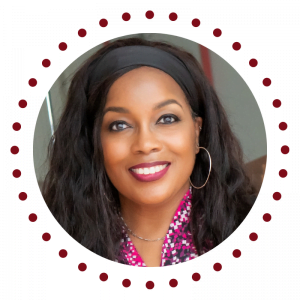
Want Karan to be Your Podcast Guest?
- Blended Workforces & the Gig Economy
- Critical Execution Tactics of High-performing Leaders
- Entrepreneurism & Leading Your Business

Want to be a Podcast Sponsor?
All sponsorships come with a featured spot on show notes pages.
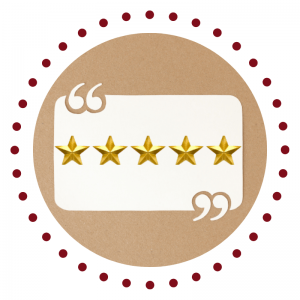
Like the Show? Please Leave a Review
If you like the show, it would mean the world to her if you left a quick review.
Your word is golden, so a HUGE thank you in advance!

#KeepInTouch
via our podcast alerts
Subscribe now to discover why thousands of monthly listeners who are passionate about doing their best work prioritize time each week to listen to the Blended Workforces @Work podcast.
#AboutSDL
#WhereToFindUs
MAILING
4480-H South Cobb Drive
PMB 219
Smyrna, GA 30080
PHYSICAL
2121 NewMarket Parkway
Ste. 108
Marietta, GA 30067
#ContactOptions
Customer Service Email:
service@shockinglydifferent.com
Call or Text:
770-384-1103
#Office Hours
MON-FRI
8:30 AM – 6:30 PM
Weekends By Appointment

